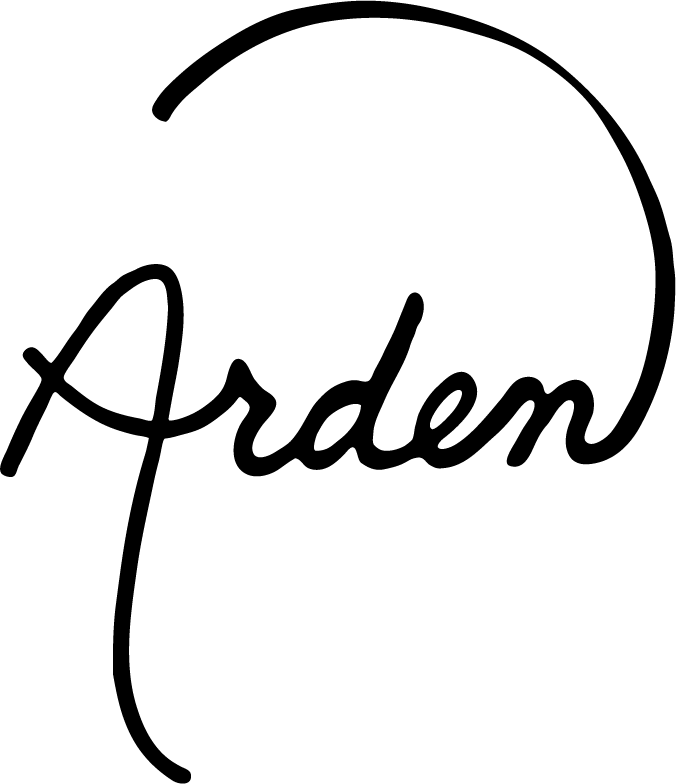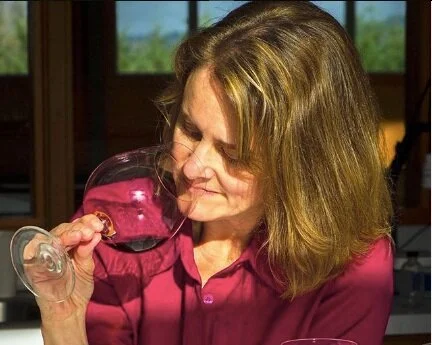Winemaker Profile: Lynn Penner-Ash of Penner-Ash Wine Cellars
March special: We are featuring Penner-Ash’s 2018 Viognier by the glass all month, and we hope you will join us at our dinner with Lynn on Monday, March 16th!
This year’s winemaker dinner series is dedicated to all the fearless females who lead the charge, and this month’s special guest is the pioneer who started it all. The founder of esteemed Penner-Ash Wine Cellars, Lynn Penner-Ash got her start in viticulture and enology before becoming the first female winemaker to be hired in Oregon, paving the way toward parity within the industry.
Today, Lynn shares how she got started in wine, the industry changes she’s seen – and catalyzed – in her 30+ year career, and what she’s looking forward to as she moves toward retirement.
Arden: When and how did you get into wine?
Lynn Penner-Ash: My parents were in the Air Force and stationed around the world, including France and Germany. I was 4 years old when we went over to Germany, so who knows if that influenced me. But my parents did go out to the local vineyards, taste wine, and bring home a gallon of wine for a week's worth of dinners.
When my dad was at the Pentagon in DC, I worked for the Smithsonian Institute [at the Smithsonian’s Botany Department] and someone told me that I should go to UC Davis and study botany if I wanted to work as a curator. So I went to Davis for botany and realized that as much as I love botany, it’s not something I saw myself doing. It's a lot of working inside with stamens and pistils, and that didn’t appeal to me. So [I worked] in Napa Valley that summer instead of going back to DC to work somewhere as a clerk. I worked at Domaine Chandon and it was fun. I worked the graveyard shift with a really great couple of people.
My [botany] units transferred to viticulture, so I did that until my junior year, when I was confronted with an old and sexist professor who said that women didn’t do viticulture. So I changed my degree to enology, thinking I’d go back to viticulture and get around what my professor was telling me. Then I got a job right out of college and my career took off, so I’ve spent most of my time in winemaking.
Arden: After working at Domaine Chandon and Chateau St. Jean, you were the enologist at Stag’s Leap Wine Cellars. What does it mean to be an enologist at a winery?
LPA: Everyone has different terms, but the enologist focuses on the wine, the blending, and the inventory of the wine. You’re like the next step down from the assistant to the winemaker. You do all the support work and the cleanup.
Arden: How has your education shaped your winemaking philosophy?
LPA: I am technically trained; UC Davis is known for its technical side of the business. I get a little upset over blanket statements like, “UC Davis is technical, and their wines are sterile.” It’s an incorrect assumption.
For me, you can see when there are issues [during winemaking], but you go into it with an open mind. I have the background to understand how it’s going wrong, but sometimes you don’t necessarily want to fix it, because it’s adding something to the wine. In those circumstances, my education gave me the skills to make up my own mind on where I want to go with that decision.
Arden: How would you describe the style of Penner-Ash wines?
LPA: Our wines are very dense and textural. I think that’s our benchmark. It’s something we worked really hard to make work here. Letting our vineyard sites do what they need to do in the cellar, but also expanding pre-ferments, where we don’t do much for the first 7-10 days, which gives it that nice texture. As soon as the wines are done, we press them off because I don’t like wines to get bitter and tannic.
Arden: How do you see the industry evolving?
LPA: One way is the acceptance of women for being capable of winemaking and viticulture. There’s women in the room; it used to be the only woman in the room. We have more than 100 women in decision-making roles in the winemaking industry [in Oregon].
Arden: Do you feel that you’ve faced any special hardships as the first female in the Oregon wine industry?
LPA: I think the hardest part was being out in the marketplace in the earlier years and getting the recognition. You could have a legitimate pedigree, and people oftentimes still wouldn't look you in the eye and see you there as another winemaker. [They thought] you were there as somebody’s staff or somebody's assistant.
There’s still a little bit of that. In a restaurant, I’m always fascinated to go to the wine list and choose what wine comes out to the table, and then [the bottle] gets offered to my husband. The assumptions are still there. I’m not very good at calling people out about it – I don’t want to make a scene. My husband handles it well. He’s worked beside me for 20 years.
Arden: Are there winemakers you love, or love to drink their wines?
My dearest are Bethel Heights. Terry and Ted have always been great. I joke that Ted was the one who saw me walk into the room when I was invited to come sit down with a group of winemakers. I was the only woman there, and Ted invited me to sit next to him. And since then, we’ve been friends and have had some great adventures. There are so many great winemakers out there.
Arden: What led you to the decision to sell to Jackson Family Wines?
LPA: My husband and I are big fans of leading lives that are healthy and well balanced. After having run a business and raising two children in that business, and putting so much focus into both...there are so many other things [to do]. And how can you do that, and have a business survive? The opportunity with Jackson came up, and it lets me keep my foot in the business while also getting to focus on other things, like travel.
Arden: Are there hobbies that you’re able to enjoy more now?
LPA: We have a sprinter van and have been putting on mileage. We’re big mountain bikers and paddle boarders. We’re going to paddle 100 bodies of water. If we see a reservoir in Bakersfield, we get out and go paddling. It forces you to go out and check new things out.
Arden: Do you have any advice for women wanting to break into the Oregon wine industry?
LPA: I think that it’s really important for women to be well-rounded and get experiences in all aspects of wine to feel comfortable. Whether you want to be on the marketing side or the winemaking or viticulture – the more experience you have, the more well-rounded you'll be going forward.
There are still a few seats available for our winemaker dinner event with special guest Lynn Penner-Ash on Monday, March 16th. Click here to reserve your spot.




